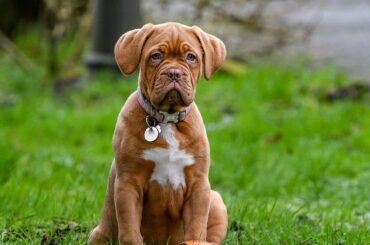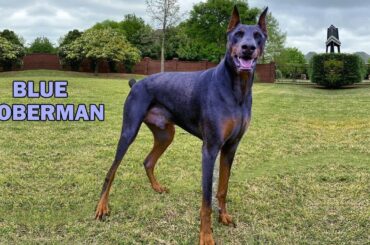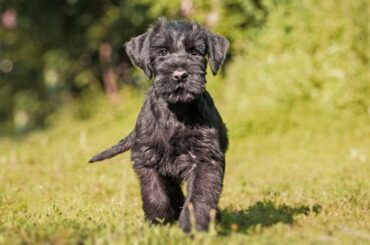Table of Contents
Introduction
Cavalier King Charles Spaniels have become beloved companions for many dog lovers. With their endearing expressions and gentle temperament, they make perfect family pets. In this article, we will explore the history, physical characteristics, personality traits, grooming needs, health considerations, cavalier king Charles spaniel price, and more that every potential Cavalier owner should be aware of. Whether you are considering getting a Cavalier or already have one, this comprehensive guide will help you understand these delightful dogs on a deeper level.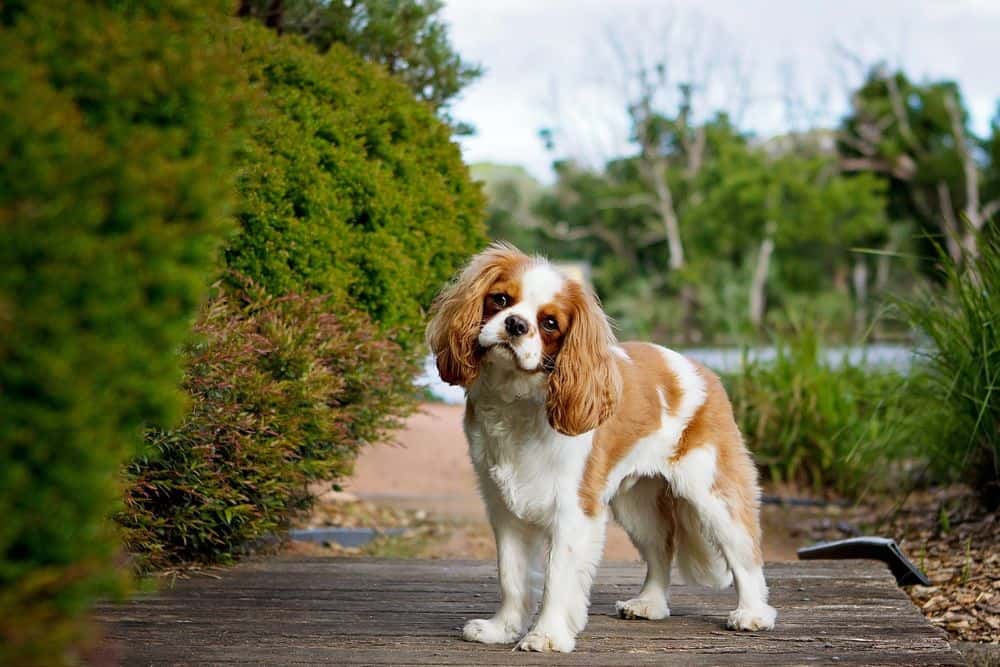
Historical Origins
Cavalier King Charles Spaniels have a long and storied history, dating back centuries. Originally bred in England, these dogs were favored by the English aristocracy, including King Charles II, who gave them their name. The breed’s roots can be traced back to toy spaniels that were popular in the 16th and 17th centuries, which makes Cavalier King Charles Spaniel Price much expensive due to the years which it has been in existence.
The Influence of Royalty on the Breed
The connection to royalty played a significant role in shaping the breed’s characteristics. Cavaliers were bred to be loyal and affectionate companions to the aristocracy, and their presence in royal portraits and literature further cemented their iconic status. The influence of the royal court on the breed’s standards and traits is evident to this day.
Physical Characteristics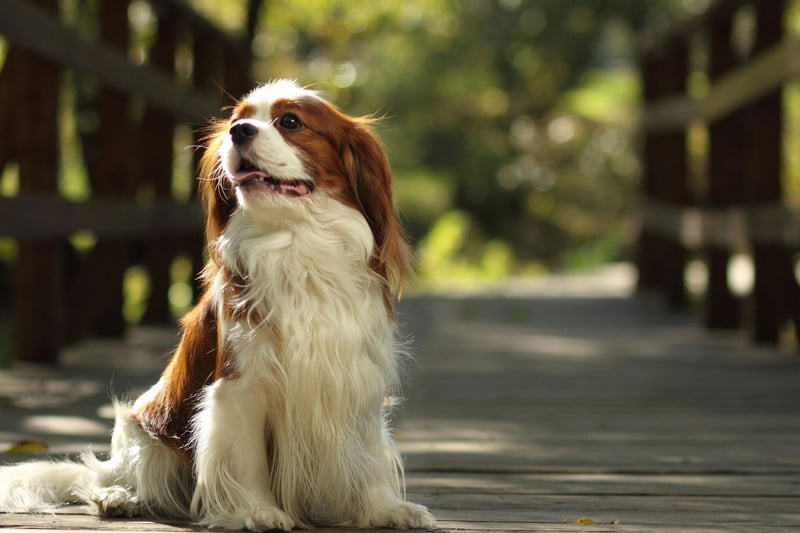
When it comes to physical appearance, Cavaliers are a true delight to behold and also Cavalier King Charles Spaniel Price be considered.
Appearance and Size of the Breed
With their small to medium-sized bodies, Cavaliers have a charming and compact build. They typically weigh between 13 to 18 pounds and stand around 12 to 13 inches tall at the shoulder. Their well-proportioned frames give them an elegant yet sturdy appearance.
Coat Colors and Patterns
One of the most striking features of Cavaliers is their beautiful and diverse coat colors and patterns. They come in four recognized colors: Blenheim (chestnut and white), Tricolor (black and white with tan markings), Black and Tan, and Ruby (solid chestnut). These different color combinations add to their individuality and appeal.
Adorable Facial Expressions
Cavaliers are known for their expressive eyes and sweet, melting expressions. They have captivating large, round eyes that are dark and full of warmth. Their long, feathered ears and silky, well-textured coats frame their faces, giving them an irresistibly charming look.
Personality Traits
Beneath their adorable exterior, Cavaliers possess a heartwarming array of personality traits that make them such beloved companions.
Affectionate and Gentle Temperament
Cavaliers are true lovebugs, known for being affectionate and gentle. They thrive on human companionship and are happiest when they can cuddle up beside their favorite person. Their loving nature extends not only to their family members but also to strangers, making them excellent therapy dogs and companions for the elderly.
Sociability and Compatibility with Children
One of the outstanding qualities of Cavaliers is their exceptional sociability. They are typically very friendly and get along well with both children and other animals. Their patient and tolerant nature makes them great playmates for kids, and their gentle demeanor ensures a harmonious coexistence in multi-pet households.
Their Natural Instincts as Companion Dogs
Cavaliers have an innate instinct to bring joy and happiness to their families. They have an uncanny ability to provide emotional support and comfort in times of need. Whether it’s snuggling on the couch or accompanying their owners on outdoor adventures, Cavaliers are always eager to be by their loved ones’ side.
Exercise and Training Needs
While Cavaliers enjoy a relaxed and easygoing lifestyle, they still require regular exercise and mental stimulation to stay happy and healthy.
Moderate Exercise Requirements
Unlike some high-energy breeds, Cavaliers have moderate exercise needs. Daily walks, interactive play sessions, and off-leash romps in a securely fenced yard are usually sufficient to fulfill their exercise requirements. It’s important to strike a balance between physical activity and rest, as too much exercise can strain their fragile joints.
Mental Stimulation through Training
Cavaliers are intelligent dogs who benefit greatly from mental stimulation. Engaging in training sessions provides an excellent opportunity to challenge their minds and bond with their owners. Training exercises can include basic commands, obedience training, and even fun tricks that showcase their intelligence and eagerness to please.
Tips for Effective Training Sessions
To make training sessions more effective, keep them short and engaging. Use positive reinforcement techniques such as treats, praise, and rewards to motivate your Cavalier. Consistency and patience are key, as these dogs can be sensitive to harsh training methods. Remember, training should always be a positive experience for both you and your furry companion.
Health Considerations
Although generally healthy, Cavaliers are prone to certain health issues that potential owners should be aware of.
Common Health Issues in Cavalier King Charles Spaniels
Cavaliers are sadly predisposed to several common health conditions. Mitral Valve Disease, Syringomyelia, and Patellar Luxation are among the most prevalent ones. Regular veterinary check-ups and early detection are crucial in managing these conditions, ensuring a good quality of life for your Cavalier.
Potential Genetic Disorders
In addition to the common health issues, Cavaliers are susceptible to certain genetic disorders. These include hip dysplasia, eye problems such as cataracts, and episodic falling syndrome. It is essential to obtain your Cavalier from a reputable breeder who conducts health tests on their breeding dogs to minimize the risk of passing on these genetic disorders.
Regular Veterinary Care and Preventive Measures
To promote the overall health and well-being of your Cavalier, regular veterinary care is essential. Routine vaccinations, dental care, parasite prevention, and a balanced diet are all part of a proactive healthcare routine. Additionally, maintaining a healthy weight and providing regular exercise will help prevent obesity-related health conditions.
Grooming and Maintenance
Cavaliers have a luxurious coat that requires regular attention to keep it looking its best.
Coats that Require Regular Attention
Cavaliers have long, silky hair that requires frequent grooming to prevent matting and tangles. Regular brushing, at least two to three times a week, helps maintain their coat’s health and minimize shedding. Pay special attention to the feathering on their legs, ears, and tail, as these areas tend to tangle more easily.
Proper Brushing Techniques
When brushing your Cavalier, use a soft-bristle brush or a slicker brush to gently remove any knots or tangles. Start from the ends of the hair and work your way up to the roots, being careful not to tug on the hair. A pin brush can be used to fluff and add volume to their beautiful feathered ears.
Bathing and Ears Cleaning
Regular bathing is necessary to keep your Cavalier’s coat clean and free from dirt and oils. However, excessive bathing can strip their coat of its natural oils, leading to dryness. Aim for bathing them once every four to six weeks, using a gentle, dog-specific shampoo. Additionally, clean their ears regularly to prevent wax buildup and infection.
Living Arrangements
Cavaliers are adaptable and can thrive in various living arrangements.
Suitability for Different Living Spaces
Cavaliers can adapt well to different living spaces, as long as they receive proper care and companionship. They are equally content in apartments, suburban homes, or rural environments. Just ensure they have access to a secure outdoor area for bathroom breaks and playtime.
Adaptability to Apartment Living
Due to their moderate exercise needs and calm temperament, Cavaliers can be well-suited for apartment living. However, it’s crucial to provide them with regular exercise and mental stimulation to prevent boredom and unwanted behaviors. Taking them for walks, providing puzzle toys, and engaging in interactive play sessions are all ways to keep them happy and entertained in smaller living spaces.
Outdoor vs. Indoor Preferences
While Cavaliers enjoy spending time outdoors, they also love being indoors with their families. They value human companionship above all else, so it’s important to strike a balance between outdoor activities and indoor relaxation. Supervised outdoor playtime and regular walks should be combined with comfortable indoor spaces where they can lounge and cuddle with their loved ones.
Feeding and Nutrition
Feeding your Cavalier a properly balanced diet is essential for their overall health and well-being.
Dietary Requirements for Cavaliers
Cavaliers thrive on a high-quality, balanced diet that provides all the necessary nutrients. Look for dog foods specifically formulated for small breeds, taking into consideration their age, weight, and activity level. Consult with your veterinarian to determine the appropriate feeding schedule and portion sizes for your Cavalier, when looking around for Cavalier King Charles Spaniel Price, the Dietary requirements must be considered.
Healthy Food Choices
When selecting dog food, opt for reputable brands that use high-quality ingredients. Look for recipes that include lean sources of protein, whole grains, and a variety of fruits and vegetables. Avoid foods with excessive fillers, artificial additives, and high levels of salt or sugar, as these can negatively impact your Cavalier’s health.
Schedules and Portion Control
Establishing a regular feeding schedule is important for Cavaliers. Divide their daily food allowance into two or three meals to prevent overeating and maintain a healthy weight. Monitor their portion sizes and adjust them as needed, taking into account any specific dietary requirements or weight management goals advised by your veterinarian.
Lifespan and Aging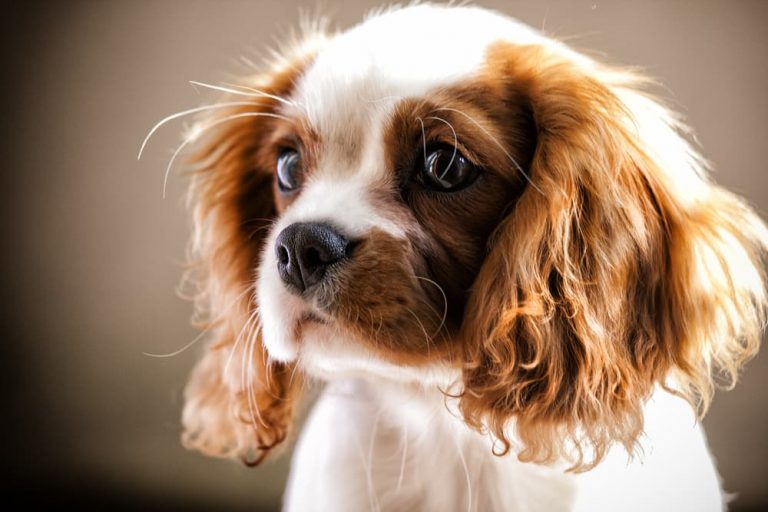
Cavaliers have a relatively long average lifespan, but their aging process requires special care and attention.
Average Lifespan Expectancy
The average lifespan of a Cavalier King Charles Spaniel is around 10 to 14 years, which is also a good factor to consider when looking for Cavalier King Charles Spaniel Price around your area. However, with proper care, some Cavaliers can even reach their late teens. Factors such as genetics, diet, exercise, and overall health can significantly impact their longevity.
Care for Senior Cavaliers
As Cavaliers age, their needs change, and they may require additional care and support. Regular veterinary check-ups become even more crucial to detect and manage age-related health issues. A balanced diet, gentle exercise, and mental stimulation tailored to their abilities can contribute to their overall well-being during their golden years.
Special Considerations for Aging Dogs
As your Cavalier reaches their senior years, adjustments may be necessary. Providing comfortable bedding, joint support supplements, and avoiding excessive strain on their joints during exercise are all important considerations. Cognitive stimulation, such as puzzle toys and interactive games, can help keep their minds sharp as they age.
Breeding and Reproduction
Responsible breeding practices are essential to maintain the health and integrity of the Cavalier King Charles Spaniel breed.
Responsible Breeding Practices
Reputable breeders prioritize the health and well-being of their dogs during the breeding process. They conduct health tests on potential breeding dogs to minimize the risk of passing on genetic disorders. Responsible breeders also carefully consider the compatibility of the parent dogs to produce healthy and well-tempered puppies.
Pregnancy and Whelping
Pregnancy and whelping in Cavaliers should be carefully supervised by a veterinarian. Regular prenatal check-ups, proper nutrition, and a calm and stress-free environment are essential for a successful pregnancy. Whelping should take place in a clean and comfortable area, under the watchful eye of an experienced breeder or veterinarian.
The Importance of Health Testing
To ensure the long-term health and well-being of the breed, health testing for Cavaliers is of utmost importance. Tests for cardiac health, patellar luxation, and eye diseases are commonly performed. Only by adhering to proper health testing protocols can breeders contribute to the preservation and improvement of the breed.
Finding a Cavalier King Charles Spaniel
Whether you choose to adopt or purchase a Cavalier, it’s important to find a reputable source.
Reputable Breeders and Adoption Centers
Finding a reputable breeder who follows responsible breeding practices is essential. Look for breeders who are knowledgeable about the breed, conduct health tests, and prioritize the well-being of their dogs. If adoption is your preferred route, reputable rescue organizations and shelters can provide loving homes for Cavaliers in need.
The Cost of Acquiring a Cavalier
The cost of acquiring a Cavalier King Charles Spaniel can vary depending on various factors, including the breeder’s reputation, the lineage of the dog, and geographical location. On average, a Cavalier can range from $1,500 to $3,500. Remember, the initial cost is just the beginning, as ongoing expenses for food, grooming, veterinary care, and supplies should also be considered.
Selecting the Right Puppy/Adult
When selecting a Cavalier, it’s important to assess their temperament and health. Ask the breeder or adoption center about the puppy’s socialization, any health issues, and the temperament of the parents. Additionally, spend time with the puppy or adult dog to ensure they are a good fit for your lifestyle and expectations.
Socialization and Living with Other Pets
Cavaliers are generally sociable dogs, but proper socialization is important for a harmonious coexistence with other pets.
Introducing Cavaliers to Other Animals
Early socialization is key in introducing Cavaliers to other animals. Gradually expose them to different animals, starting with controlled and positive interactions. Monitor their behavior closely, and provide rewards and praise for appropriate behavior. With patience and consistency, Cavaliers can learn to peacefully coexist with other pets.
Potential Challenges and Solutions
While Cavaliers are typically friendly and adaptable, some challenges may arise when introducing them to other pets. For example, they may be initially cautious or assertive with larger dogs. Close supervision, positive reinforcement, and gradual introductions can help address these challenges and ensure a harmonious relationship between your Cavalier and other pets.
Coexistence with Other Dog Breeds
Cavaliers are generally easygoing and get along well with other dog breeds. Their sociable nature allows them to form friendships and play nicely with dogs of all sizes. However, it’s important to monitor their interactions and provide proper supervision to prevent any potential conflicts or misunderstandings.
Famous Cavalier King Charles Spaniels
Cavalier King Charles Spaniels have made their mark in pop culture and have been beloved pets to many famous individuals.
Notable Cavaliers in Pop Culture
Cavaliers have appeared in various forms of media, including movies and television shows. Some notable examples include “Sex and the City” character Charlotte York’s Cavalier named Elizabeth Taylor and the Cavalier featured in the film “The Princess Diaries.”
Celebrity Owners and Their Cavaliers
Famous individuals from various fields have fallen in love with Cavaliers. Their celebrity owners include actors like Reese Witherspoon and Hugh Jackman, as well as music legend Sir Elton John. These high-profile figures have helped increase awareness and appreciation for the breed.
Influencers in the Cavalier Community
In the digital age, social media influencers have played a role in celebrating Cavaliers. Many dedicated accounts showcase the daily adventures and adorable antics of Cavalier King Charles Spaniels. These influencers contribute to the sense of community and share valuable insights into life with Cavaliers.
Training Resources and Activities
Training resources and engaging activities can enhance the bond between you and your Cavalier.
Recommended Training Books and Websites
A wealth of training resources is available to help you navigate the training journey with your Cavalier. Books such as “The Cavalier King Charles Spaniel Handbook” by Linda Whitwam and online platforms like “Zak George’s Dog Training Revolution” can provide valuable tips and step-by-step guides for training success.
Fun Activities for Cavalier King Charles Spaniels
Cavaliers enjoy a variety of activities that provide mental and physical stimulation. Interactive games, puzzle toys, and hide-and-seek can keep their minds engaged. They can also excel in activities such as agility, obedience competitions, and even therapy work, showcasing their versatility and intelligence.
Agility and Obedience Competitions
Cavaliers are known for their agility and intelligence, making them excellent candidates for agility and obedience competitions. These events not only provide an opportunity to showcase their skills but also promote fitness, mental stimulation, and a deeper bond between dogs and their owners.
Traveling with Cavaliers
Traveling with your Cavalier King Charles Spaniel can be a rewarding enjoyable experience for both you and your furry friend. However, it’s important to take certain precautions to ensure safe and comfortable travels. Here are a few tips to make your journey a breeze:
Tips for Safe and Comfortable Travels
- Ensure your Cavalier is properly secured in a well-ventilated carrier or crate while traveling in a car or plane. Safety harnesses or car seats designed specifically for dogs can also be a great option.
- Make frequent stops during long drives to allow your pup to stretch their legs, relieve themselves, and stay hydrated. Remember to pack water and a collapsible bowl.
- Avoid feeding your Cavalier a large meal right before traveling to minimize the chances of motion sickness. Instead, opt for a light snack a couple of hours prior to departure.
- Keep your Cavalier’s ID tags and microchip information up to date, just in case they accidentally get lost during your travels.
- Pack familiar items such as their favorite toys, blankets, and a cozy bed to provide them with a sense of comfort and familiarity.
Preparing for Long Trips
If you’re planning a long trip with your Cavalier King Charles Spaniel, a little extra preparation can go a long way in ensuring their safety and well-being. Here’s what you need to do:
- Schedule a visit to your veterinarian before embarking on a long journey. It’s essential to ensure that your furry companion is in good health and up to date on vaccinations.
- Research and plan your route carefully, including pet-friendly pit stops where your Cavalier can stretch, exercise, and relieve themselves.
- Pack essential supplies such as food, treats, medications, and a first aid kit specifically for your Cavalier. Don’t forget waste bags, a leash, and a collar with identification tags.
- Create a comfortable and secure space for your Cavalier in your vehicle. Use crates or carriers to keep them safe and minimize distractions while driving.
Pet-Friendly Accommodations and Destinations
When traveling with your Cavalier King Charles Spaniel, finding pet-friendly accommodations and destinations is crucial. Here are some tips to help you plan a pet-friendly trip:
- Research and book hotels, motels, or vacation rentals that explicitly welcome pets. Ensure these accommodations have the necessary amenities, such as designated pet areas or nearby walking trails.
- Explore pet-friendly destinations that offer outdoor activities suitable for you and your Cavalier. Look for parks, beaches, or hiking trails that allow dogs on a leash.
- Be aware of any breed restrictions or specific regulations regarding pets in your chosen destination. Knowing these in advance will help you avoid any unpleasant surprises.
Cavalier King Charles Spaniel Clubs and Communities
Engaging with Cavalier King Charles Spaniel clubs and communities can be an excellent way to connect with other passionate owners and enthusiasts unto Cavalier King Charles Spaniel Price. Here’s how you can get involved:
Engaging with Local Breed Clubs
- Search for local breed clubs dedicated to Cavalier King Charles Spaniels in your area. These clubs often organize events, training sessions, and social gatherings for owners to share knowledge and experiences which is a good factor on Cavalier King Charles Spaniel Price.
- Attend breed-specific shows and competitions to learn more about the breed and connect with breeders, trainers, and experienced owners.
- Consider becoming a member of a breed club. This can provide access to resources, educational materials, and a supportive network of like-minded individuals.
Online Communities and Forums
In today’s digital age, online communities and forums offer a convenient way to interact with fellow Cavalier King Charles Spaniel owners from around the world. Here’s how to make the most of these platforms:
- Join online forums and social media groups dedicated to Cavalier King Charles Spaniels. These platforms allow for discussions, sharing of stories and photos, and seeking advice from a wide community of knowledgeable individuals.
- Participate actively in these communities by asking questions, providing support, and contributing your experiences. Remember to always maintain a courteous and respectful tone.
Breed-Specific Events and Meetups
Attending breed-specific events and meetups can be a fantastic opportunity to bond with other Cavalier enthusiasts while learning more about the breed. Here are some ways to find and get involved in such events:
- Keep an eye out for local or regional events specifically organized for Cavalier King Charles Spaniel Price. These can include playdates, picnics, or walks where your dog can socialize and have fun.
- Check with your local breed club or online communities for information on upcoming events and meetups. These gatherings often provide educational sessions, training workshops, and guest speakers.
Cavalier King Charles Spaniel Price
Cavalier King Charles Spaniel Price can vary depending on various factors such as the breeder, location, lineage, and the dog’s overall quality. On average, you can expect to pay anywhere between $1800 to $3500 for a Cavalier King Charles Spaniel Price for puppy from a reputable breeder. Show-quality or rare color variations of Cavalier King Charles Spaniel Price may command a higher price.
There are additional expenses to consider, such as vaccinations, spaying/neutering, microchipping, supplies (food, toys, bedding, etc.), grooming, veterinary care, and ongoing maintenance costs. Cavalier King Charles Spaniel Price is crucial to budget for these expenses and provide proper care for your Cavalier King Charles Spaniel throughout its life.
READ ALSO:
- The Complete Guide to Mastiff Dog Price: How Much Does Owning a Majestic Mastiff Cost
- Cane Corso Price Demystified: How Much Should You Expect to Pay?
- Great Pyrenees Price: How Much Does a Great Pyrenees cost?
- Brittany Dog Price – How Much Does A Brittany Cost? Updated 2023
- 7 Body Characteristics of German Shepherd Chow Mix – Behaviour, Caring & Health
Summary
In summary, traveling with your Cavalier King Charles Spaniel requires careful preparation and attention to their needs when considering Cavalier King Charles Spaniel Price. It’s crucial to secure their safety, provide them with comfort, and make sure they feel at home during your travels. Furthermore, engaging with local clubs, online communities, and attending breed-specific events can enrich your experience as a Cavalier owner, offering valuable connections and knowledge sharing opportunities.
Frequently Asked Questions
Are Cavalier King Charles Spaniels prone to separation anxiety?
Cavalier King Charles Spaniels are known for their affectionate nature, and as such, they can be prone to separation anxiety. It is essential to gradually acclimate them to being alone and provide mental stimulation and engaging toys to help alleviate any potential separation anxiety.
Do Cavaliers require extensive grooming?
While Cavalier King Charles Spaniels have a luxurious coat, they do not require highly intensive grooming. Regular brushing, trimming of their nails, and maintaining good dental hygiene are generally sufficient.
Are Cavaliers good with children?
Yes, Cavalier King Charles Spaniels are generally known to be great with children. They are gentle, patient, and have a friendly disposition, which makes them suitable companions for families with kids. However, it's always important to supervise interactions between dogs and young children.
How much exercise do Cavaliers need?
Cavalier King Charles Spaniels have moderate exercise requirements. Daily walks, play sessions, and mental stimulation are essential to keep them physically and mentally healthy. However, it's important to note that every dog is unique, and their exercise needs may vary. Consulting with a veterinarian can help determine the appropriate exercise routine for your Cavalier.
Conclusion
In conclusion, Cavalier King Charles Spaniels bring joy, loyalty, and love like no other breed, so Cavalier King Charles Spaniel Price is worth considering. Whether you’re traveling with them, engaging in breed clubs and communities, or simply enjoying their company, these delightful dogs are sure to enhance your life. Remember to prioritize their safety, well-being, and social interactions to ensure a fulfilling and rewarding experience for both you and your Cavalier.
If you like, please share it. Sharing is usually caring

